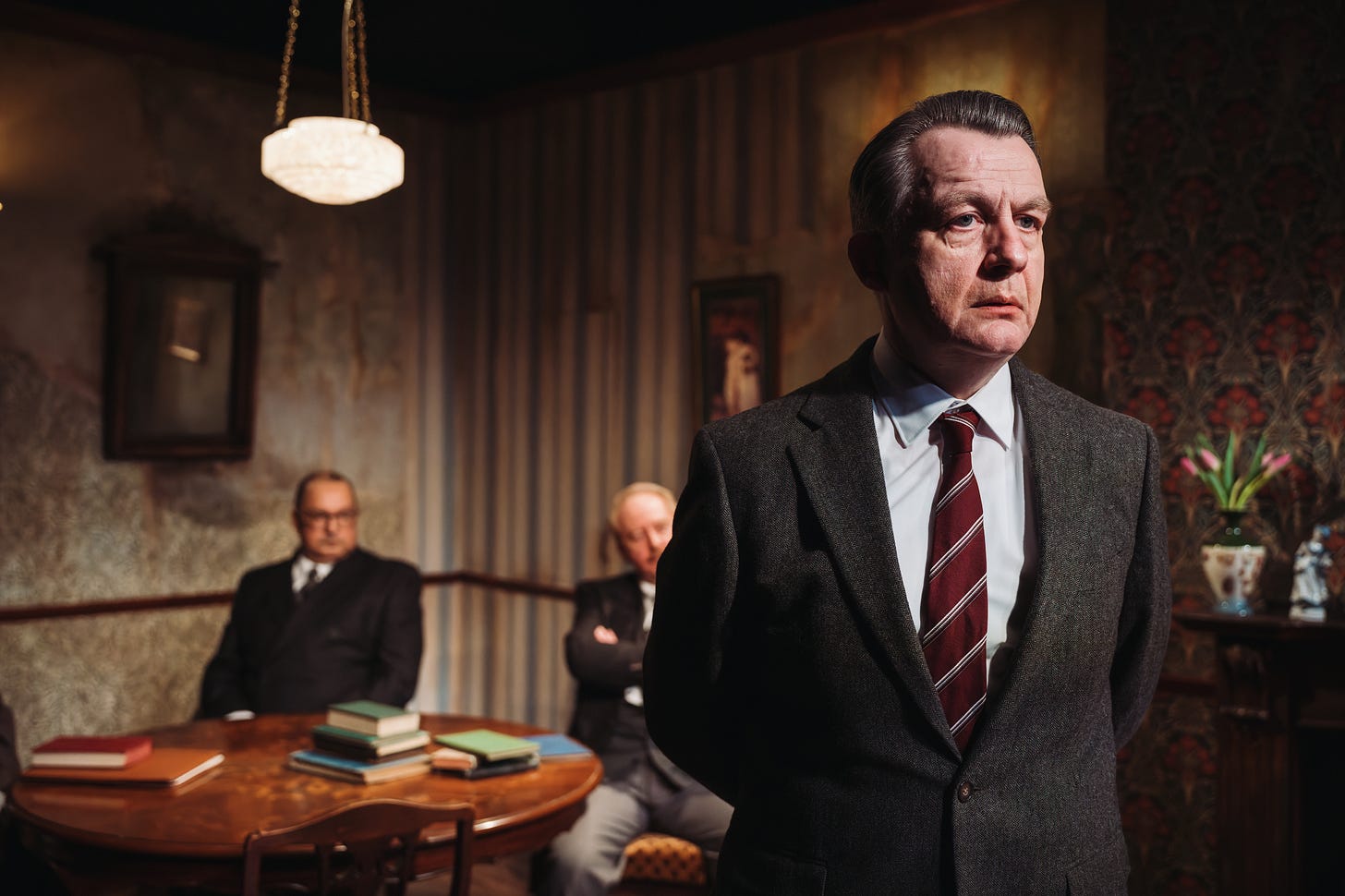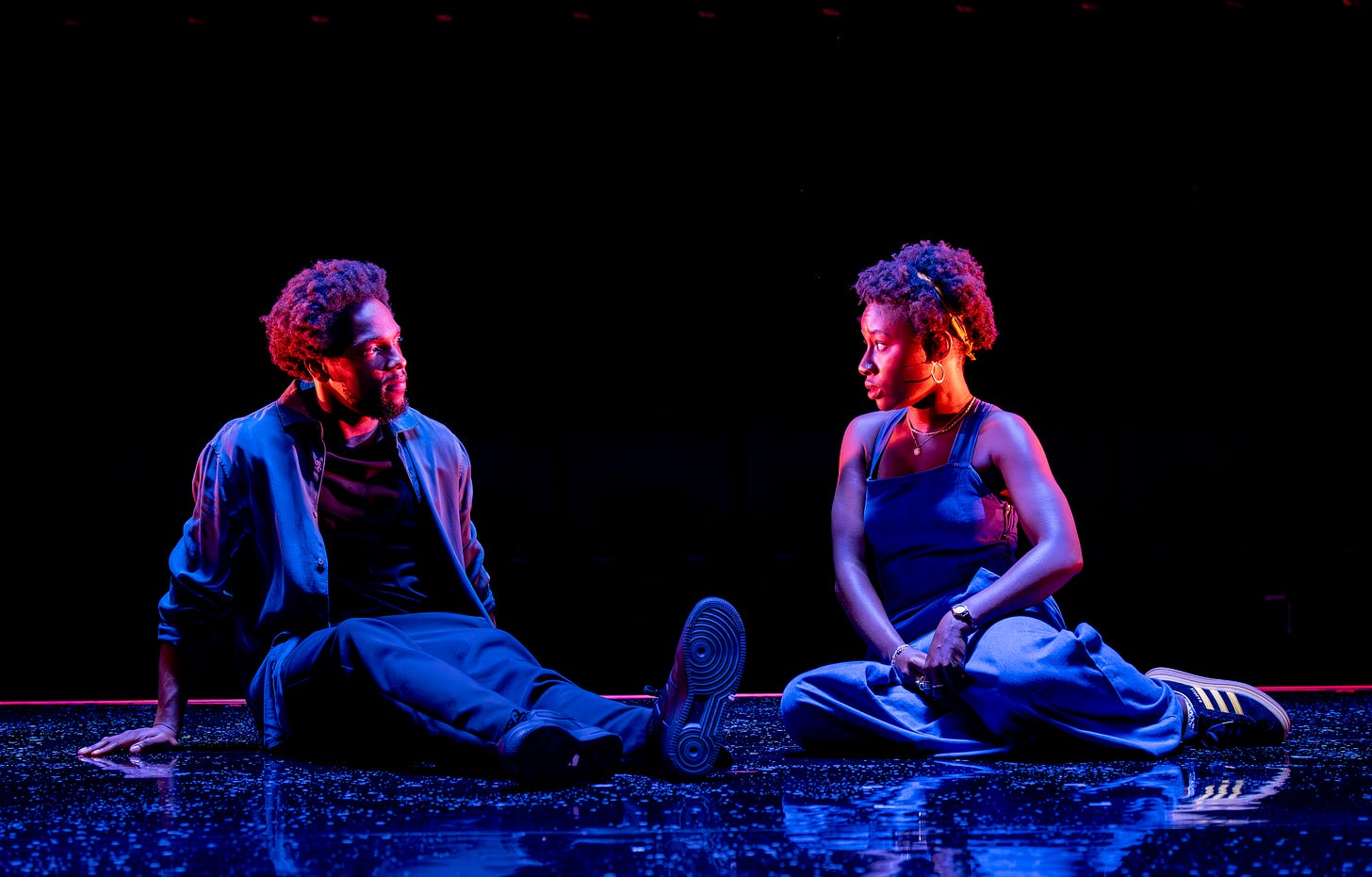Might she finally shut up about that show?
Read on to find out... and for more of what's on in London this week and beyond
Welcome to another edition of The London Culture Edit. Thanks to all of you for reading, even if you only read the top bit (though you’re missing out, NGL).
This week
Even those readers may be bored with me banging on about Benedict Lombe’s mercurial, moving, brilliantly sharp, funny play Shifters, which had its official opening in the West End last night so I’ll keep it brief - starring Supacell’s Tosin Cole and the artist and actor Heather Agyepong, both utterly believable and heartrending, it was as glorious and beautiful as I remember it being when it opened at the Bush Theatre, and if you don’t at least think about booking tickets, how many times do I have to say it? It runs to October 12.
Farm Hall, at the Theatre Royal Haymarket until August 31, started out life at the nearby (and absolutely tiny) Jermyn Street Theatre, and proved to be the most successful show they’ve ever mounted. This is probably mainly down to the story, which is a cracking one - in July 1945, ten German scientists, all but one of whom had been involved in nuclear research, were detained at Farm Hall, a manor house in Cambridgeshire.
They didn’t know (though you’d have thought that ten of Germany’s finest minds might have extrapolated) that the house was bugged, with the intention of finding out how close Hitler’s Uranverein (Uranium Club) had actually come to creating a nuclear bomb.
Katherine Moar’s debut play (she must be pinching herself) slims down the number of men to a more manageable six, including Otto Hahn, who later that year won the Nobel Prize for his discovery of nuclear fission, and two paid-up Nazi party members, Karl Diebner and Erich Bagge. And though transcripts survive of their seven months of aimless hanging about in the comfort of an English country house, only the sections pertinent to politics and the question at hand - the proximity to a successful bomb - were kept.
This means that Moar, using these scraps (about ten percent of the original volume) as a starting point, is able to flex her imagination with entertaining conversations between the men - an attempt to act out a scene from Wilde’s play (abortive), a flight of fancy about how the British officer in charge of their incarceration, Major Rittner, might have met his wife, and a bad-tempered discussion on whether they need a piano.
FLAGRANT SELF PROMOTION ALERT: “Just a quick note to say that I'm finding your substack SO useful! It's animating London for me again, letting me know what's worth seeing or listening to when I've been too busy to know what's up or down. So - thank you so much!”
~ subscriber Jennifer Higgie
Oh, and of course, discussions about culpability and self-interest - about the different reasons for which Diebner and Bagge joined the party, about the protection conferred by age, eminence and personal connections, and, once they discover, to their disbelief and horror, that America has succeeded in building and using an atomic bomb, about where the line of responsibility lies when a major scientific discovery, made in the pure pursuit of knowledge, is used in the violent pursuit of power.

It’s one of many interesting questions raised by this staid but moderately absorbing play, which is pretty solid for a debut. The ensemble cast is accomplished and engaging, and it trots along nicely, though at less than 100 minutes of stage time it really doesn’t need the interval, and the moment that the group finds out about America’s success is a wasted opportunity for a moment of proper theatre.
Keep reading with a 7-day free trial
Subscribe to The London Culture Edit to keep reading this post and get 7 days of free access to the full post archives.





